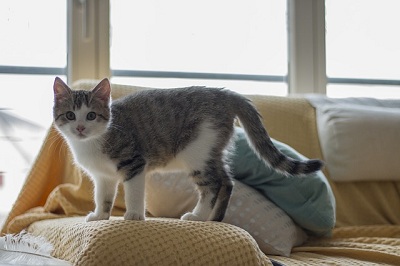Do Indoor Cats Need Flea Treatment?
Do Indoor Cats Need Flea Treatment?
Many owners of indoor cats believe that their pets do not need flea treatment. However, veterinarians advise us to apply flea control on indoor cats, even though they never go out. According to them, cats can get fleas from other pets, people who visit us, or from us. We may bring in fleas on our clothes or shoes from the outside world. They do not suggest the same flea control as in outdoor cats, but some measures should be provided. Some of them believe that soap and water may solve the problem. In addition to this, less invasive treatment than topical flea control, they recommend grooming a cat with a special flea comb. These two methods might be enough to remove fleas and their eggs from a cat. However, indoor cats who live with dogs, which regularly go outside, need a flea treatment. In a case of flea infestation, feline experts recommend treating all carpets and furniture against flea. It is because fleas spread rapidly and may infest the whole area where the cats spend their time. To answer the question – do indoor cats need flea treatment – the article “Is It Necessary to Deworm an Indoor Cat?” gives us the following explanation.
Do Indoor Cats Need Flea Treatment?
The possibility of getting worms is a lot smaller in indoor cats compared to that of outdoor cats. However, most veterinarians suggest that indoor cats should be wormed almost as frequently as outdoor cats. Why?
The reason is that it’s not possible to tell when your cat will be exposed to worm eggs or larvae again. It could happen the minute after dewormer has stopped working; therefore, you must give preventive medicine on a regular basis.
How often should you worm a cat? It depends on several factors, such as where you live, what medicine is used, and whether your cat has been infected for quite some time. You may need to give your cat worming medicine as frequently as every three months (except in winter) or only once a year (administering drugs twice within two weeks) when the ground freezes.
Veterinarians warn us about tapeworms in cats infested with fleas. According to them, there are many indoor cats without flea control that get tapeworms. It happens when a cat eats an infected flea when grooming herself. For that reason, feline experts advise us to check a cat’s fur regularly against fleas. The best way to do so is to establish regular brushing routine. Using blank paper and a flea comb will easily show fleas and their eggs. And it can be the best flea control in indoor cats.










